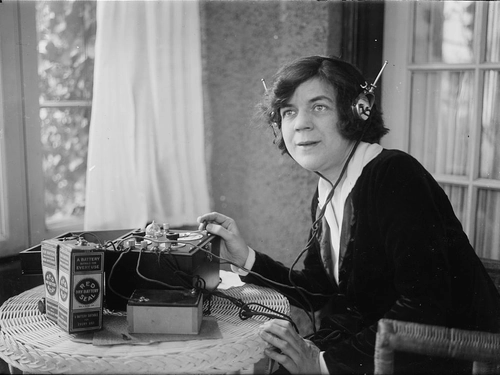Is the composer a listener or a performer?
Someday I would like to do more teaching. For now, I’m fortunate to have a single student whom I semi-formally teach music theory and composition. I have a lot of fun revisiting all these ideas I was so excited to learn long ago, even if I sometimes struggle to present them clearly on first pass. But part of this is also me learning how to teach better.
During today’s lesson, my student noted that when writing, he struggles to “break out” of the key he’s in. He wanted to explore other harmonic possibilities, but wasn’t sure how to start. In the spirit of building his toolbox, I did give him some more practical examples of what he could try. But to me, this question evokes something deeper that I still struggle with when writing: a desire to “stick to what you know”.
In my case, it’s not staying within one key, but certainly I have particular musical moves that are part of my style and come very easily for me. When I’m low on real inspiration, I usually fall back onto these moves and write extremely bland music. What I’m failing to do in these cases is really listen to what I’m playing, as an interested party.

As a composer, you can model the social aspect of music in terms of three roles: composer, performer, and listener. These three roles interrelate and overlap in interesting ways. For example, a performer is usually also a listener, and in a normal case, they should be. It’s a lot harder to make good music if you’re not listening to what you’re making!
When it comes to the composer, it seems like they might be more closely aligned to the performer role. Indeed, there’s this kind of natural flow of the musical idea, from the composer to the performer and from the performer to the listener.* But when it comes to writing, I think it’s at least as important for the composer to conceive of themselves as a listener.
When it comes down to it, you don’t just have to think about what you want to say with your music, you have to think about what you want to hear in it. Just like the first-time listener, when you start working on a piece, you have no idea where it will go. You, too, are waiting to be surprised by a new musical revelation, a way of hearing you never had before. If you want to really affect people, really move them, you have to find something that moves you first, which is something you can only achieve by fully listening to what you’re doing.
Do you struggle with “sticking to what you know”?
Do you try to take the perspective of a “listener” (or equivalent audience) when making art?
Do you do any teaching?
Let me know your thoughts at my Ctrl-C email: gome @ ctrl-c.club.
* You could take from this observation a model where the composer has the original idea of what they want to express, and then the performer takes on the task of expressing that, while the listener is passive and receives the expression. You would have a kind of hierarchical chain, with creation on one side leading to receptivity on the other side. But I tend to think each of these roles, properly understood, has both a receptivity aspect and a co-creation aspect in the musical act.